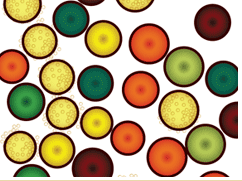Research in Surgical Oncology
 The Division of Surgical Oncology actively participates in clinical trials of new treatments for cancer within the UC Davis Cancer Center. There are currently over 100 ongoing trials for various malignancies. UC Davis Cancer Center participates in several multi-institutional oncology groups including Southwest Oncology Group (SWOG), Radiation Therapy Oncology Group (RTOG) and the California Cancer Consortium. All patients evaluated at UC Davis Cancer Center are considered candidates for entry into a clinical trial.
The Division of Surgical Oncology actively participates in clinical trials of new treatments for cancer within the UC Davis Cancer Center. There are currently over 100 ongoing trials for various malignancies. UC Davis Cancer Center participates in several multi-institutional oncology groups including Southwest Oncology Group (SWOG), Radiation Therapy Oncology Group (RTOG) and the California Cancer Consortium. All patients evaluated at UC Davis Cancer Center are considered candidates for entry into a clinical trial.
The Sentinel Node (Breast Cancer) trial
Breast Cancer Sentinel Lymph Node Registry
The lymph node status of the patient with breast cancer remains the most powerful factor for predicting recurrence and survival. Standard procedure for staging breast cancer patients is the axillary lymph node dissection. The presence of nodal metastases directly affects the plan for adjuvant chemotherapy, hormonal therapy, and radiation therapy in some patients. However, the complications of axillary lymph node dissection can be significant. A less invasive procedure would be preferable if accurate staging information could be obtained. Lymphatic mapping and sentinel lymph node biopsy has been used successfully for accurate nodal staging of melanoma patients. The "sentinel node" is the first lymph node to receive lymphatic drainage from the melanoma, and is the first node to which the tumor would metastasize.
The Breast Cancer Sentinel Lymph Node Registry is a nationwide multicenter registry which hopes to determine the accuracy of sentinel lymph node biopsy for nodal staging in breast cancer patients. The registry will provide data, based on nation-wide statistics, to determine the applicability and accuracy of this surgical technique.
Radiofrequency Ablation of Liver Tumors (RFA) study
Optimal therapy for primary or metastatic liver tumors is complete surgical resection. Unfortunately, the majority of patients cannot undergo surgery for a variety of reasons. Underlying liver disease, number of tumors or location of tumors are frequent causes for the exclusion of surgical therapy. Unfortunately, alternative therapies are relatively ineffective. An evolving therapy is the application of high frequency energy to the tumor production death of cancer cells by heat destruction. This treatment may be applied to multiple liver tumors with minimal destruction of normal liver tissue. RFA may be performed either percutaneously, laparoscopically, or during an "open" abdominal exploration.
Not yet accepted as the standard of care, RFA is still considered experimental treatment. The Division of Surgical Oncology is one of only several medical centers in the United States offering RFA to patients. This procedure is coordinated by Drs. P. Schneider (Division of Surgical Oncology) and J. McGahan (Department of Radiology).

